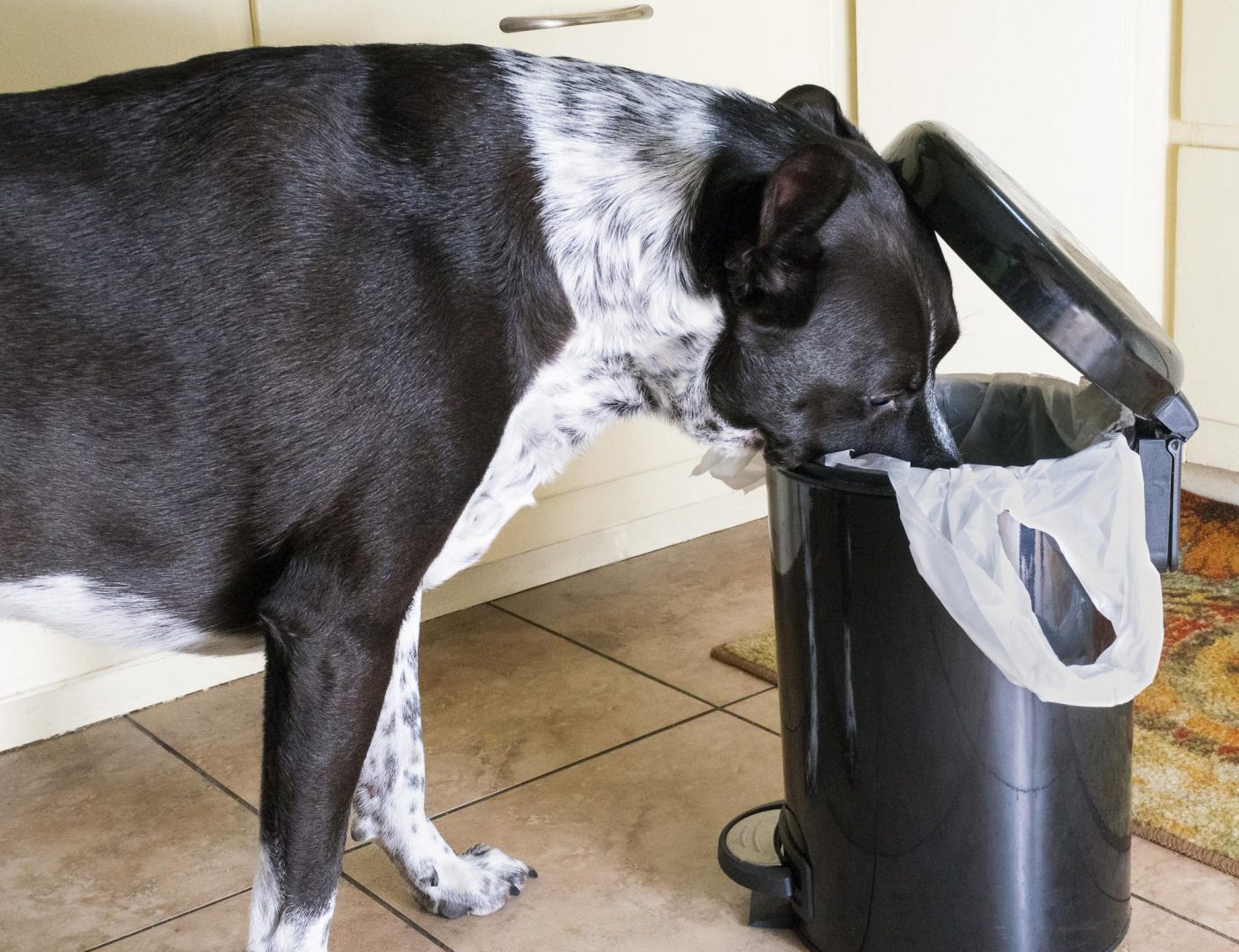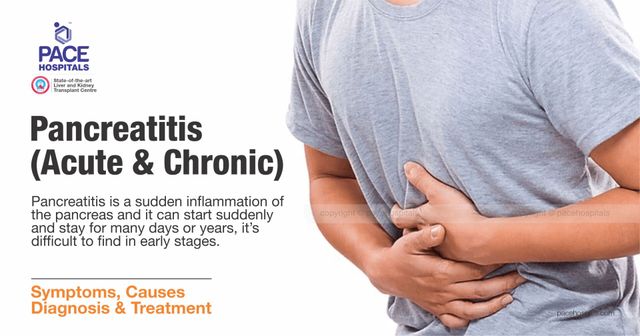Pancreatitis in dogs and cats is a condition characterized by inflammation of the pancreas. Causes, prevention, and treatment options are all important considerations for effectively managing this condition.

Credit: www.thefarmersdog.com
Contents
Causes Of Pancreatitis
Pancreatitis in dogs and cats can be caused by various factors, including high-fat diets, obesity, certain medications, and underlying conditions. Preventive measures such as maintaining a healthy weight, feeding a balanced diet, and regular veterinary check-ups can help reduce the risk.
Treatment options may include medication, dietary adjustments, and supportive care to manage symptoms and promote recovery.
Pancreatitis is a condition that affects both dogs and cats, causing inflammation of the pancreas. Understanding the causes of pancreatitis is crucial for prevention and effective treatment. Several factors contribute to the development of pancreatitis, including dietary factors, obesity, and medications.Dietary Factors
When it comes to the causes of pancreatitis in pets, dietary factors play a significant role. High-fat diets are commonly associated with pancreatitis in dogs and cats. The pancreas produces enzymes responsible for breaking down fats, and when the intake of fatty foods is excessive, it can overwhelm the organ, leading to inflammation. It is important to ensure that our furry friends receive a balanced diet that is low in fat to reduce the risk of pancreatitis.Obesity
Obesity is another major contributing factor to pancreatitis in dogs and cats. When pets are overweight, the excess fat tissue puts added stress on the pancreas. Over time, this can lead to inflammation and the development of pancreatitis. Maintaining a healthy weight through regular exercise and a well-balanced diet is essential to minimize the risk of pancreatitis due to obesity.Medications
Certain medications have been known to trigger pancreatitis in pets. These include corticosteroids, certain antibiotics, chemotherapy drugs, and antiepileptic medications. Although the exact mechanism is not fully understood, it is believed that these medications can directly or indirectly cause damage to the pancreas, leading to inflammation. It is crucial to consult a veterinarian before administering any medication to your pet to assess the potential risks and benefits.In addition to dietary factors, obesity, and medications, other factors such as genetics, specific medical conditions, and infections may also contribute to the development of pancreatitis in dogs and cats. Understanding these causes allows pet owners to take necessary precautions and make informed decisions in managing and preventing this condition. By providing our beloved companions with a balanced diet, maintaining a healthy weight, and seeking veterinary guidance when using medications, we can help minimize the risk of pancreatitis and promote overall well-being.

Credit: www.pacehospital.com
Signs And Symptoms Of Pancreatitis
If you’re a pet parent, it’s crucial to be aware of the signs and symptoms of pancreatitis in dogs and cats. Pancreatitis is an inflammation of the pancreas, a vital organ responsible for producing digestive enzymes and insulin. Identifying the early warning signs can help you take prompt action and seek the necessary treatment to ensure your furry friend’s well-being. Let’s explore the common signs and symptoms of pancreatitis in dogs and cats.
Vomiting
Vomiting is one of the primary symptoms associated with pancreatitis in dogs and cats. It is often frequent and accompanied by bile or undigested food. If you notice your pet frequently vomiting or having trouble keeping food down, it’s essential to consult your veterinarian. Persistent vomiting can lead to dehydration, so it’s crucial to address this symptom promptly.
Loss Of Appetite
Another telltale sign of pancreatitis in pets is a sudden loss of appetite. While dogs and cats may occasionally experience a decrease in hunger due to minor issues, an ongoing loss of appetite can indicate a more significant health problem such as pancreatitis. A significant change in your pet’s eating habits, including rejecting favorite treats or meals, should be taken seriously and brought to the attention of your veterinarian.
Abdominal Pain
Pancreatitis often causes abdominal pain in dogs and cats. You may notice your pet displaying signs of discomfort or restlessness, avoiding contact with their stomach, or hunching their back. The pain can range from mild to severe, and it’s essential to be observant of any behavioral changes that may indicate abdominal discomfort. If your pet appears to be in pain or exhibits these behaviors, it’s crucial to consult with your veterinarian for a proper diagnosis and appropriate treatment.
Prevention Of Pancreatitis
Pancreatitis can be prevented in dogs and cats through proper diet and weight management. Regular veterinary check-ups, avoiding fatty foods, and implementing a balanced diet can help reduce the risk of this painful condition.
Pancreatitis is a disorder that can cause severe distress to our furry friends. Fortunately, there are steps we can take to minimize the risk of this condition in dogs and cats. By implementing a few preventive measures, we can ensure the well-being of our beloved pets. Let’s take a closer look at some effective strategies for preventing pancreatitis.Proper Diet
Maintaining a proper diet is crucial in preventing pancreatitis in dogs and cats. Feeding them a balanced and healthy diet is the key to their overall well-being. When it comes to preventing pancreatitis, there are some dietary factors to keep in mind: 1. Avoid High-Fat Foods: High-fat diets are a major trigger for pancreatitis. It is important to avoid feeding your pets with fatty scraps, fried foods, or excessive amounts of oily treats. 2. Opt for Low-Fat Alternatives: Instead of high-fat options, choose low-fat alternatives that are specifically formulated for pets. These diets are designed to provide the necessary nutrients without overburdening the pancreas.Weight Management
Maintaining a healthy weight is essential for preventing pancreatitis in dogs and cats. Obesity has been identified as a significant risk factor for this condition. Here are some weight management tips to consider: 1. Portion Control: Ensure appropriate portion sizes to prevent overfeeding. Follow the feeding guidelines provided by the pet food manufacturer or consult with your veterinarian for personalized recommendations. 2. Regulate Treat Intake: Treats are a source of joy for our pets, but excessive treats can lead to weight gain. Limit treat consumption and opt for low-fat, healthy alternatives that won’t put unnecessary stress on the pancreas.Avoidance Of Certain Medications
Some medications can potentially trigger pancreatitis in dogs and cats. It is crucial to be aware of these medications and prevent their use unless prescribed by a veterinarian. Here are some medications that should be avoided: 1. Steroids: Steroidal medications can increase the risk of pancreatitis. Avoid these medications unless prescribed by a veterinarian. 2. Some Antibiotics: Certain antibiotics, such as tetracycline and metronidazole, have been associated with pancreatitis. Always consult your veterinarian before administering any antibiotics to your pets. By following these preventive measures, we can significantly reduce the risk of pancreatitis in our furry companions. Implementing a proper diet, managing their weight, and avoiding certain medications will ensure the well-being of our pets. Remember to consult with your veterinarian for personalized advice and guidance in preventing pancreatitis.Treatment Of Pancreatitis
After diagnosing pancreatitis in your dog or cat, it is crucial to start the appropriate treatment to alleviate their discomfort and prevent further complications. The treatment of pancreatitis typically involves fluid therapy, pain management, and a specialized diet.
Fluid Therapy
Fluid therapy plays a vital role in the treatment of pancreatitis in dogs and cats. It helps to support the affected pet’s hydration levels and manage any electrolyte imbalances that may have occurred. Intravenous (IV) fluid administration is commonly used to ensure quick absorption and distribution throughout the body.
Benefits of Fluid Therapy:
- Restores hydration
- Maintains blood pressure
- Ensures proper organ function
- Assists in flushing out toxins
- Promotes healing and recovery
Pain Management
Pancreatitis can cause considerable pain and discomfort in dogs and cats. Effective pain management is essential to improve their overall well-being and minimize suffering. Veterinary professionals may prescribe appropriate pain medications to control the pain associated with pancreatitis.
Tips for Pain Management:
- Administer prescribed pain medications as directed by your veterinarian
- Monitor your pet closely for any signs of discomfort
- Provide a comfortable and quiet resting place
- Limit physical activities to avoid exacerbating pain
- Follow-up with your veterinarian regularly to assess pain levels and adjust the treatment plan if necessary
Specialized Diet
Dietary changes are crucial when it comes to managing pancreatitis in dogs and cats. Feeding a specialized diet helps to reduce the workload on the pancreas and promotes healing. Your veterinarian may recommend a low-fat or prescription diet specifically formulated for pets with pancreatitis.
Dietary Recommendations:
- Feed small, frequent meals to ease digestion
- Avoid fatty foods that may trigger pancreatitis
- Stick to the recommended diet plan provided by your veterinarian
- Consider feeding a balanced, commercial pet food tailored for pancreatitis management
- Consult your veterinarian if you have any concerns or questions regarding your pet’s diet

Credit: bondvet.com
Frequently Asked Questions Of Pancreatitis In Dogs Cats Causes Prevention Treatment
How Can I Prevent My Dog From Getting Pancreatitis?
To prevent pancreatitis in dogs, follow these steps: 1. Limit fatty foods in their diet. 2. Feed them a balanced and nutritious diet. 3. Avoid sudden changes in their diet. 4. Provide regular exercise and maintain a healthy weight. 5.
Keep them hydrated and ensure they have access to fresh water at all times.
What Foods Can Cause Pancreatitis In Dogs?
Foods that can cause pancreatitis in dogs include fatty foods, like bacon and sausage, as well as human junk food. Grapes, raisins, and alcohol should also be avoided.
What Toxins Cause Pancreatitis In Dogs Treatment?
Toxins that can cause pancreatitis in dogs include antifreeze, certain medications, certain foods (such as fatty or spicy foods), insecticides, and cleaning products. Prompt treatment by a veterinarian is crucial to manage and alleviate the symptoms of pancreatitis in dogs.
Conclusion
Understanding the causes, prevention, and treatment options for pancreatitis in dogs and cats is crucial for their overall well-being. By minimizing their exposure to risk factors, such as a high-fat diet or certain medications, pet owners can potentially ward off this painful condition.
Timely diagnosis and proper medical intervention are essential for managing pancreatitis effectively. Staying informed and working closely with veterinarians can help ensure a healthier future for our furry companions.




